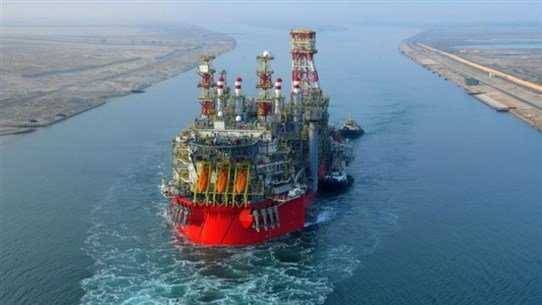The official and public sectors in Lebanon are waiting for a response from Israel to clarify whether the maritime border demarcation file will indeed be completed, thereby opening the door to the resumption of drilling for gas and oil extraction. If the demarcation is resolved before next fall, will the return to drilling be swift?
There is a consensus that the current opportunity for gas extraction may not recur, given the international circumstances surrounding this issue and Europe's need for new gas sources, including gas from the Mediterranean basin. However, one cannot rely solely on optimism. Some have even suggested that the company "Total," which has a treaty with Lebanon for oil and gas exploration and extraction in the territorial waters and the exclusive economic zone, has booked 150 hotel rooms in a Lebanese hotel for its team that will be present in Lebanon to begin drilling in Block 9.
Whether the promotion of such news is innocent or deliberately driven by parties with their own objectives to spread such information, it is essential to present the facts related to this topic to avoid misguided illusions.
What is known about this issue is as follows:
First, Total's team does not need that many hotel rooms. During the peak drilling in Block 4, the number of hotel rooms reserved in Lebanese hotels did not exceed 20.
Second, regardless of the policies imposed by the countries to which the oil exploration companies belong, the priority for these companies lies in executing their own agendas related to their projects and plans set for years to come. Lebanon is not among Total's priorities in the coming years. This does not reflect any political decision or the like, as some might think; Cyprus, where Total possesses exploration rights in a wide range of promising blocks, is also suffering from slow work by the French company, which has priorities in other areas, even though "European" Cyprus represents a unique opportunity for gas extraction at this particular time.
Third, Total’s experience in Lebanon during the drilling in Block 4 is not encouraging enough for the company to break its plans and elevate Lebanon to exceptional priority status. This concern is not related to the drilling results, which did not lead to the discovery of commercially viable gas quantities, but rather to the hardships the company faced in completing the routine transactions with ministries and official institutions. For example, obtaining the environmental impact assessment took an unusually long time, forcing Total to send high-ranking officials from abroad to meet with then-Prime Minister Hassan Diab to discuss their ongoing issues. After that, the "document" was completed within two days, reflecting the delays being practiced in official circles. This model applies to all administrative transactions the company has conducted in Lebanon, which have all been a constant struggle, as reported by those responsible for drilling in Lebanese waters.
It appears that, in addition to the administrative routine in the country, which complicates and prolongs the completion of any transaction, the lack of payment of bribes to employees has contributed to additional complications. Total, which conducts transactions with global stock exchanges, is aware that this situation exposes it to prosecution in the United States under the Foreign Corrupt Practices Act (FCPA) if it commits the offense of bribery in Lebanon, where financial penalties are severe. Therefore, the company has ensured that its contracted companies sign commitments to refrain from paying bribes, under the threat of liability. This might explain why some official transactions have only been completed with great difficulty over long and unusual periods.
This reality needs to be reviewed by the Lebanese authorities if we reach a maritime border demarcation and begin serious discussions about a swift return to drilling, lest we fall into the "story" of the village woman who aged without marrying, and when the villagers were asked about the reasons, they replied: "She is ugly and the road is difficult and the house is far." In other words, there is no reason to motivate suitors. So, does the country today possess any incentive to urge companies to swiftly explore for gas in our waters?




